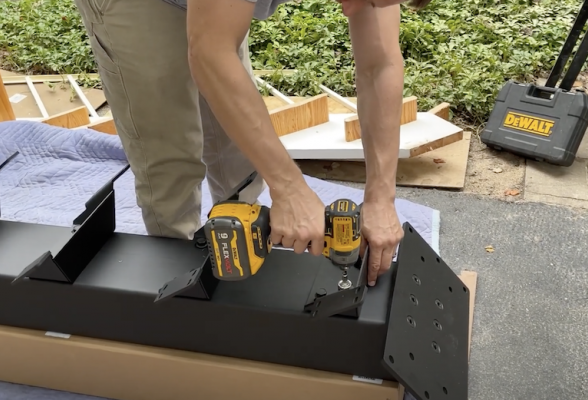6 Ways to Speed Up the HOA Approval Process for Your Remodeling Project
This year’s Model ReModel must get the thumbs up from not one, but two HOAs.

With more than 370,000 homeowner associations (HOAs) in the United States, the chances are good that one of your current or upcoming remodeling jobs will require getting approval from an HOA.
These organizations, which may be overseen by paid managers or volunteer homeowners, want to ensure a community is well maintained, with properties retaining their value. “That frequently involves rules about the exterior appearance of the homes,” says Mina Fies, CEO of Synergy Design & Construction. An HOA can even affect how a remodeling project is managed, from where work vehicles can park, the hours available for demolition and construction, and even notifying neighbors about the project, according to Synergy.
HOAs can make remodeling projects a little more tricky, but these organizations also support key amenities, like this neighborhood dock in Reston near this year’s Model ReModel. The Reston Association oversees four lakes in the community.
And it all goes double for this year’s Model ReModel, which is subject to not one, but two associations in Reston.
If your client’s home is covered by a homeowners association, get the documents so you can review the guidelines for products, approvals, work rules, and more.
Model ReModel Will Navigate Two Home Owner Associations
In addition to their specific neighborhood homeowners association, the Fies' home in Northern Virginia is governed by Reston Association (RA). With more than 21,000 units, 15 pools, 55 miles of paved trails, 1,300 acres of open space, and $17 million in revenue in 2020, RA is one of the largest community associations in the country. And like many HOAs, it enforces community design standards, as they are defined by individual Reston neighborhood HOAs.
For the Model ReModel, that means any proposed exterior changes or new materials must first be approved by the neighborhood HOA. If the plans get the thumbs up from the neighborhood group, then they can be presented to the larger Reston Association’s Design Review Board. Once that board approves, the remodeler and homeowner can move forward with their changes.
It can be a tricky system, but for the past 12 years, Reston-based Synergy has shepherded numerous home remodels through the HOA approval process. Here are six tips from Fies for ensuring a smooth home renovation when an HOA is involved.
How Remodelers Can Work With HOAs on a Renovation
- Get the documents. Your homeowner client may have a copy of the HOA rules from when they purchased their home; the guidelines may also be posted on the HOA’s website.
- Find out the specifics. Once you have the documents, familiarize yourself with the details. Some HOAs have rules about everything from roof materials to the color door that can be painted. If the project involves landscaping, look specifically for any restrictions or approvals required for the removal or replacement of trees.
- Provide examples. To ease the approval process, work with your homeowner to provide samples of products planned for the project and renderings illustrating the changes.
- Talk about timelines. Getting approvals from an HOA will add time to the process. Find out when your homeowner’s HOA meetings happen (your homeowner may not know) and discuss who will present the proposed changes: you as the remodeler or your client as the homeowner.
- Be patient. “Hold off purchasing exterior construction materials until you are confident they will be approved by the HOA,” Fies advises.
- Don’t ignore the issue of HOA approvals. While it can be difficult for an HOA to take legal action, it can put a lien on the home, preventing a homeowner from selling or refinancing their property if a project has not been approved.
Concerned about getting a new product approved? It can be challenging. Advances in building materials in terms of energy efficiency and durability mean some HOA rules and restrictions can be outdated. “But don’t assume HOAs are not open to change,” Fies adds. “Many HOAs understand the value of evolving with the times.” As new materials become more accepted, the extra effort in getting that product approved might just pay off.
Have approval from the homeowner's HOA? Put in something to make the design pop: a kitchen fireplace.












